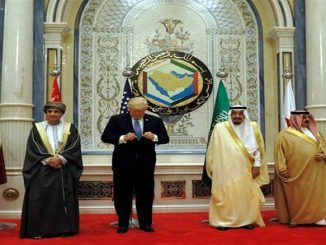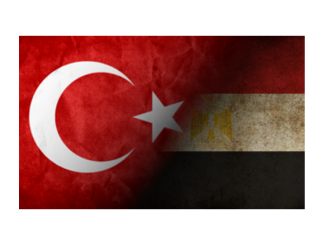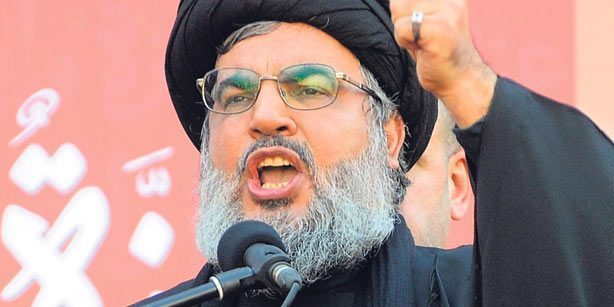
Bahraini opposition groups have said they reject a decision by the Gulf state to normalize relations with Israel, with a leading Shi’ite cleric on Sunday calling on the region’s people to resist, Reuters reports.
Cleric Ayatollah Sheikh Isa Qassim, living in Iran, said he was against normalization between Arab countries and Israel, in a statement published by dissolved Bahraini opposition party al-Wefaq, a group close to Qassim.
The accords between Israel and the UAE last month, and between Israel and Bahrain on Friday, go against the will of the people, he said.
“There is a great divergence between the rulers and the ruled in thought, mind, aims and interests. Governments are experiencing a psychological defeat and want to impose it on the people, and the people have to resist this defeat,” Qassim said.
A joint statement by a group of Bahraini political and civil society associations, including the Bahrain Bar Association, on Sunday stood against the deal.
“What results from normalization will not enjoy popular backing, in line with what generations of Bahrainis have been brought up on in terms of adherence to the Palestinian cause,” the statement said.
The head of Bahrain’s highest court ordered judiciary employees not to criticise government policy or express opinions harming national unity, al-Bilad newspaper reported on Sunday.
Bahrainis have previously criticized their government’s engagements with Israel, including last June’s conference in Manama to launch a US-led $50 billion economic formula for Israeli-Palestinian peace.
Parliament last April joined social media calls to stop Israeli business and government officials attending an international entrepreneurship conference. The delegation did not attend.
Bahrain follows UAE
In response to the normalization of relations between Bahrain and Israel, Palestine recalled Bahrain envoy, denounced latest deal as ‘another treacherous stab to the Palestinian cause’.
Bahrain has joined the United Arab Emirates in agreement to normalize relations with Israel, in a US-brokered deal that Palestinian leaders denounced as “another treacherous stab to the Palestinian cause”.
President of the United States Donald Trump announced the deal on Twitter on Friday after he spoke by phone to Bahrain’s King Hamad bin Isa Al Khalifa and Israeli Prime Minister Benjamin Netanyahu.
“This is truly a historic day,” Trump told reporters in the Oval Office, saying he believed other countries would follow suit.
“It’s unthinkable that this could happen and so fast.”
In a joint statement, the United States, Bahrain and Israel said “opening direct dialogue and ties between these two dynamic societies and advanced economies will continue the positive transformation of the Middle East and increase stability, security, and prosperity in the region”.
A month ago, the UAE agreed to normalize ties with Israel under a US-brokered deal scheduled to be signed at a White House ceremony on Tuesday hosted by Trump, who is seeking re-election on November 3.
The ceremony is due to be attended by Netanyahu and Emirati Foreign Minister Sheikh Abdullah bin Zayed Al Nahyan. The joint statement said Bahrain’s Foreign Minister Abdullatif al-Zayani will join that ceremony and sign an “historic Declaration of Peace” with Netanyahu.
Like the UAE agreement, Friday’s Bahrain-Israel deal will normalize diplomatic, commercial, security and other relations between the two countries. Bahrain, along with Saudi Arabia, had already dropped a ban on Israeli flights using its airspace.
Friday’s joint statement only made passing mention of the Palestinians, who fear the moves by Bahrain and the UAE will weaken a longstanding pan-Arab position that calls for Israeli withdrawal from already illegally occupied territory and acceptance of Palestinian statehood in return for normal relations with Arab countries.
The statement said Bahrain, Israel and the US will continue efforts “to achieve a just, comprehensive, and enduring resolution to the Israeli-Palestinian conflict to enable the Palestinian people to realise their full potential”.
‘Grave harm’
Netanyahu welcomed the agreement and thanked Trump.
“It took us 26 years between the second peace agreement with an Arab country and the third, but only 29 days between the third and the fourth, and there will be more,” he said, referring to the 1994 peace treaty with Jordan and the more recent agreements.
For its part, Bahrain said it supports a “fair and comprehensive” peace in the Middle East, according to BNA state news agency. That peace should be based on a two-state solution to resolve the Israeli-Palestinian conflict, the report said, quoting King Hamad.
Jared Kushner, Trump’s son-in-law and senior White House adviser, hailed the agreements as “the culmination of four years of great work” by the Trump administration.
Speaking to reporters in a call from the White House soon after Friday’s announcement, Kushner said the UAE and Bahrain agreements “will help reduce tension in the Muslim world and allow people to separate the Palestinian issue from their own national interests and from their foreign policy, which should be focused on their domestic priorities”.
The Palestinian leadership, however, condemned the agreement as a betrayal of the Palestinian cause and recalled the Palestinian ambassador to Bahrain for consultations.
In a statement, the Palestinian Authority said it “rejects this step taken by the Kingdom of Bahrain and calls on it to immediately retreat from it due to the great harm it causes to the inalienable national rights of the Palestinian people and joint Arab action”.
The Palestine Liberation Organization (PLO), based in Ramallah, the occupied West Bank, called the normalization “another treacherous stab to the Palestinian cause”. And in Gaza, Hamas spokesman Hazem Qassem said Bahrain’s decision to normalize relations with Israel “represents a grave harm to the Palestinian cause, and it supports the occupation”.
‘A purely Saudi decision’
Khalil Jahshan, executive director at the Arab Center of Washington, said Saudi acquiescence was key to Bahrain’s decision.
“It is a purely Saudi decision. In the absence of the ability, due to internal constraints, by the leadership in Saudi Arabia to respond positively to Trump, they gave him Bahrain on a silver platter.”
Bahrain, a small island state, is home to the US Navy’s regional headquarters. Saudi Arabia in 2011 sent troops to Bahrain to help quell an uprising and, alongside Kuwait and the UAE, in 2018 offered Bahrain a $10bn economic bailout.
Al Jazeera’s Nida Ibrahim, reporting from Ramallah in the occupied West Bank, agreed, saying Palestinian officials believe the Bahrain and the UAE deals would not have happened “without regional backing”.
“The fear among the Palestinians is that these deals are a green light for more Arab states to normalize with Israel,” she said. “And many Palestinians say that for years they saw the US as Israel’s lawyer or partner and now they see it as Israel’s agent. That’s because Trump is the one announcing these normalization deals.”
Since taking office, the Trump administration has pursued staunchly pro-Israel policies, including moving the US embassy from Tel Aviv to Jerusalem, ordering the PLO to shutter its Washington, DC, office and recognizing Israel’s occupation of the Syrian Golan Heights.
The US president and his advisers have championed a so-called “deal of the century” proposal to resolve the Israeli-Palestinian conflict – and they have courted Arab Gulf states to try to drum up support for that initiative.
Bahrain, for example, hosted a US-led conference in June 2019 to unveil the economic side of the proposal, and Emirati and Saudi leaders voiced support at the time for any economic agreement that would benefit Palestinians. Palestinian leaders boycotted that summit, however, saying the Trump administration was not an honest broker in any future negotiations with Israel.
Reporting from Washington, DC, Al Jazeera’s Kimberly Halkett said while the deals between Israel, Bahrain and the UAE are not high on the list of priorities for most US voters, a large portion of Trump’s supporters are Evangelical Christians who favor his pro-Israel positions.
Halkett said Trump is trying to show them before the November 3 contest that he can get the “deal of the century” done in his second term.
“He’s acting as if this is a framework that will bring about that so-called ‘deal of the century’,” Halkett said, despite the fact that “the president and his administration’s representatives are not even talking to the Palestinians right now”.
Different reactions
In the aftermath of the Israel-Bahrain agreement to forge diplomatic relations, several countries in the region have reacted to the second Gulf-region country’s decision to establish ties with Israel.
Israeli Prime Minister Benjamin Netanyahu said he was “excited” that “another peace agreement” had been reached with one more Arab country.
“This is a new era of peace. Peace for peace. Economy for the economy. We have invested in peace for many years and now peace will invest in us,” he said.
US Secretary of State Mike Pompeo tweeted: “The President kept his promise to strengthen America’s friendships and build new partnerships in pursuit of peace. There is clear momentum for the new Middle East. I thank King Hamad and Prime Minister Netanyahu for having the courage to change the fate of nations.”
The Foreign Ministry of United Arab Emirates (UAE) congratulated Israel and Bahrain on normalizing their relations and called it a step toward stability and prosperity in the region. UAE had made the same move in August.
The President of Egypt Abdel Fattah Al-Sisi welcomed the normalization of relations between Israel and Bahrain and called it a “step toward peace and stability in the Middle East” and thanked both sides for taking this “historic step”.
Saudi Arabia, as the biggest supporter of Bahrain, has not taken a clear stance regarding the agreement. Sources inside Trump administration who have been involved in the efforts to persuade Saudi Arabia to normalize relations with Israel say it seems unlikely for now.
Palestinian groups have condemned the agreement, with the Foreign Minister of the Palestinian Authority recalling its ambassador from Manama and condemning Bahrain’s decision as “treason to Al-Quds, Al-Aqsa Mosque, and the issue of Palestine.”
The spokesperson for Hamas also condemned the agreement and said the weak response by the Arab countries to the Israel and UAE agreement led to other countries moving toward normalization of relations with Israel.
One Iranian parliamentary official also warned UAE and Bahrain against “clearing the way for Israel’s plans in the region.”



